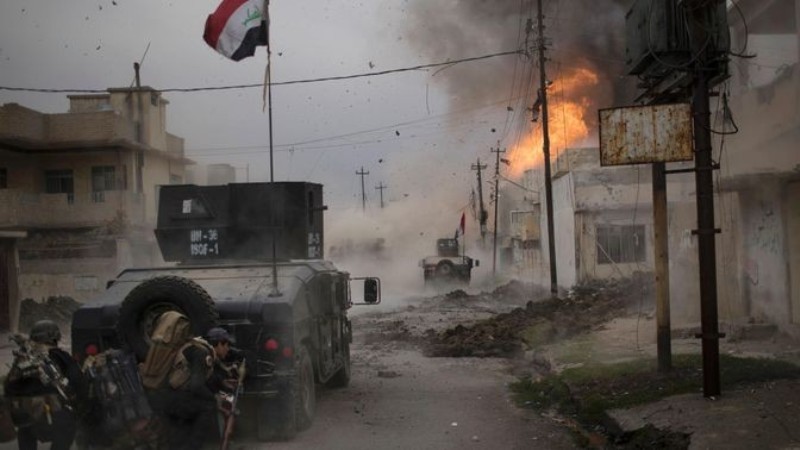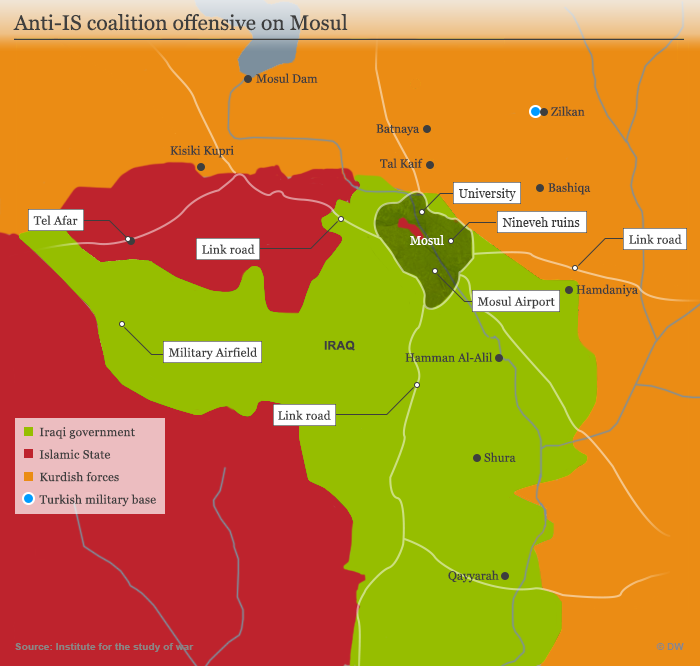Operation merciless

The Iraqi army is upping the tempo. It claims that 90 percent of the city has now been liberated from IS. The declared intention was to be finished with Operation Mosul by the start of the holy fasting month of Ramadan. During this time, observant Muslims must refrain from eating or drinking from dawn to dusk.
This is a now putting an enormous strain on the soldiers. The bulletproof vests, weapons, munitions and other equipment that the soldiers have to carry around with them cause body temperatures to soar. Iraq is in any case currently afflicted by a heat wave that is pushing the thermometer above the 40-degree Celsius mark. But the goal has not been realised. Government troops, supported by US-coordinated air attacks, are still meeting considerable resistance in the western half of the city.
Last jihadist stronghold
The fight for the northern Iraqi city, taken by IS in June 2014, has undoubtedly entered its final phase. The jihadists are defending their last stronghold in Iraq with extreme doggedness and brutality. At times this has meant either slowing or even partially suspending the Iraqi army campaign. Progress by government troops in recent days and weeks has been painfully slow, especially in the densely built-up and populated western part of the city.

On several occasions there have been reports of large numbers of civilian casualties, some caused by airstrikes. Fighter jets from the U.S.-led international coalition are supporting the Iraqi army offensive. The UN estimates that 200,000 civilians are still trapped in IS controlled sections of Mosul's old town. The online magazine "Iraq Oil Report" reports that they are enduring agonising hours:
"The dead bodies of civilians lie in the streets, killed in street battles and airstrikes. Around 50 houses were destroyed on one single day. Ten doctors, who had sought refuge in a building, are dead. There is no longer any kind of medical care available. People have no water and no food. The families of IS fighters are also slowly running out of food, after stealing the last supplies from those who don't want to co-operate with IS. If they refuse to hand over their food they are shot dead."
IS focus on civilians
The neighbourhood of Thawra is repeatedly making headlines as one of the most fiercely contested areas of western Mosul. While residents in the eastern districts of the city are gradually returning to their houses, clearing away the rubble and carrying out initial repairs to their property, fighting continues on the other side of the Tigris. When 90 civilians were killed in Thawra on a single day, the anti-IS alliance bowed to political pressure and suspended combat operations for several days. Eyewitness reports from this part of the city are among the most horrific stories to emerge from the conflict.
The black IS banner still flies from the minaret atop the Great Mosque. Government troops have now been trying in vain to recapture the Islamic place of worship. The Mosque is named after the Turkish leader Nur al-Din Mahmoud Zangi, who ruled over Mosul and Aleppo during the Ottoman Empire. The mosque was built two years before his death in the year 1174. During his reign, Nur al-Din called on all Muslims to join the jihad against Christian crusaders.
Birgit Svensson
© Qantara.de 2017
Translated from the German by Nina Coon
